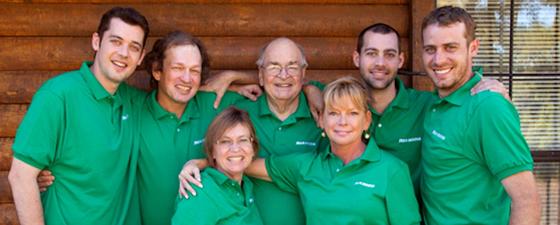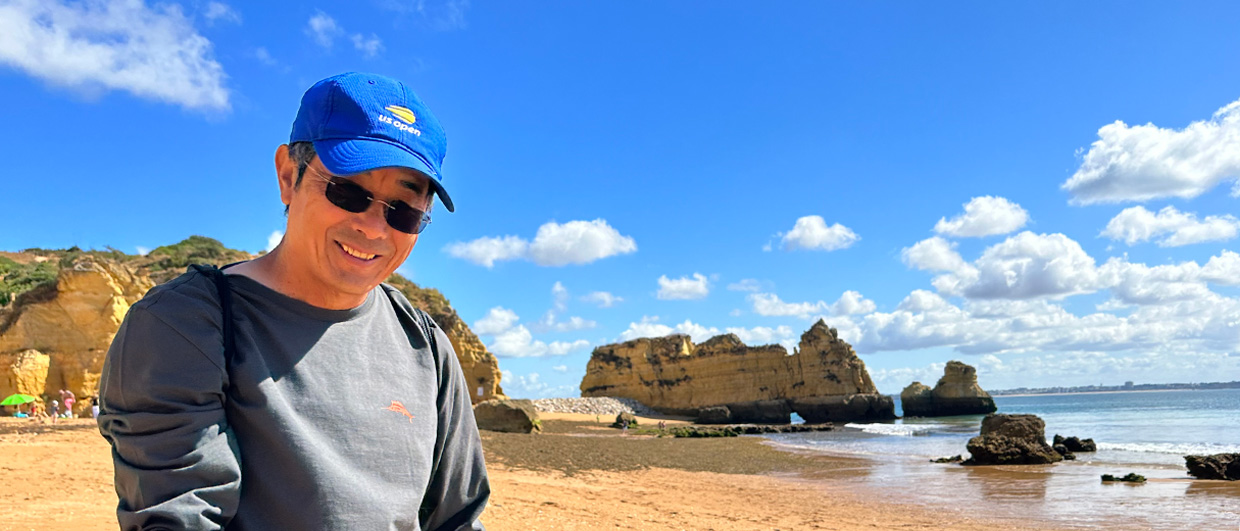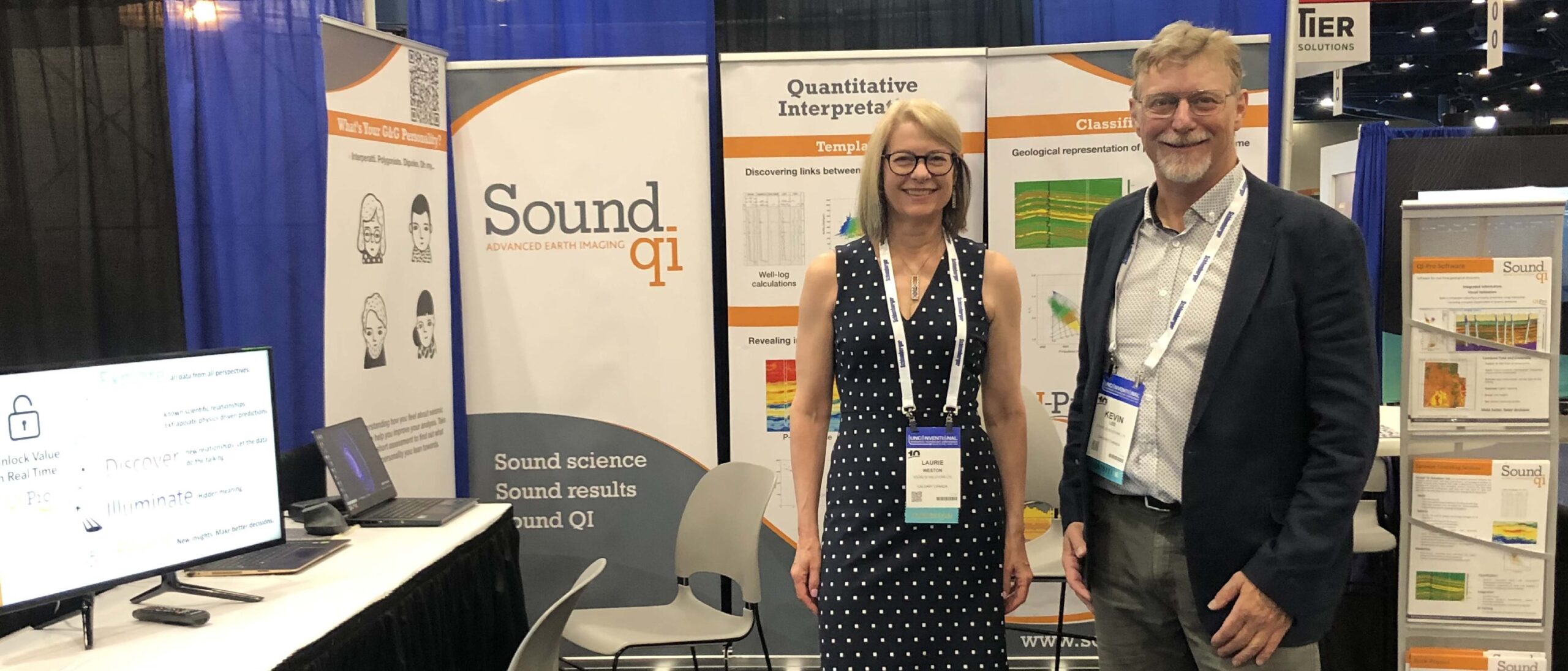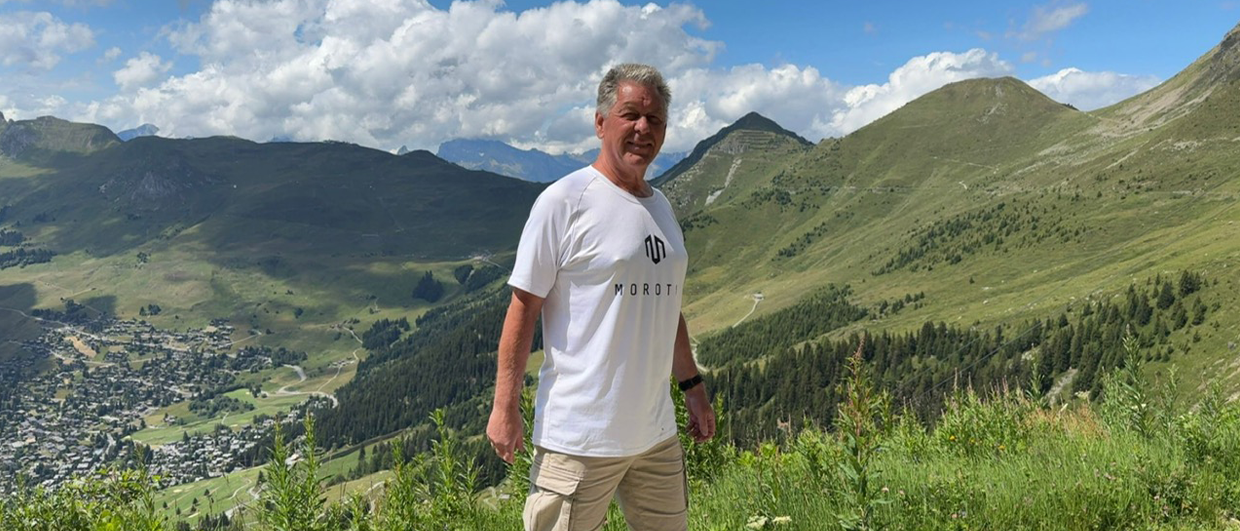How does one shift from a career path in chemistry to one in geology and the oil and gas industry? For Downey, it began by going to war. “In 1952, the day I graduated with an undergraduate degree in chemistry, I was drafted into the US Army,” he says. “I spent two years in Korea and the Philippines, after which I was shipped back to the US”
While convalescing in a Veterans Administration hospital in Lincoln, Nebraska, Downey began graduate studies in chemistry at the University of Nebraska. During this time, he took part in a series of Army-administered IQ and aptitude tests. “These tests indicated that I had particular strengths in spatial visualization, mathematics and physics. They also suggested that these strengths were best suited to the fields of architecture and geology,” he says.
And while Downey was still content with chemistry, his experience in the war had changed his perspective. After spending the past two years sleeping out of doors in squad tents or jungle hammocks, he felt confined by the long hours spent inside the chemistry lab. “As you might imagine, coming back to a non-air conditioned, indoor laboratory setting in the middle of summer in Nebraska made me feel a bit like a caged animal.”
At this time, and with the encouragement of a friend, Downey met with the chairman of the university’s geology department, who was looking for graduate students with an aptitude for math and physics to transfer into geology. “To my astonishment, he offered me a place in the geology graduate program, even though I had never taken a geology course in my life,” Downey says. “I took all my courses in parallel, and accumulated both a BS degree and MS degree in geology, and logged 100 hours of course work towards a PhD degree.”
Shell Come Calling
His PhD pursuit was cut short when his education funding through the US federal government’s G.I. Bill ran out. However, Shell Oil came calling for Downey, where he began an illustrious career that presented opportunities that were both personally rewarding and unexpected, at times. “One such unexpected opportunity came after I had been working for Shell as a geologist for a few years,” Downey recalls. “Out of the blue, I received a call from a Shell vice-president in New York, who remembered that I had a chemistry background.”
Downey was transferred out of the E&P segment and assigned to Shell’s R&D laboratory in Bellaire, Texas to work with a group of world-class chemists on a special project aimed at understanding the occurrence, origin and migration of oil. Within one year in the group, Downey had been promoted to project supervisor, with 35 researchers reporting to him.
“I have had the opportunity to manage many teams over the years, in many different companies, and I have always been fortunate to be surrounded by really bright, capable people,” Downey says. “I’ve always maintained that a good manager is not necessarily a star player, but rather a coach who knows how to get the best work out of their people and gives them the proper credit. I always loved the saying, ‘There’s no limit to the good you can do, so long as you don’t care who gets the credit.’”
After four years of working in R&D, Downey’s career took another pleasant and unexpected turn. “After just a decade of work experience, I was made Chief Geologist. I was shocked, as this promotion made me the youngest Chief Geologist in Shell history at the time. I was only 35,” Downey says.
Over the next 20 years, Downey held a number of management and executive roles within Shell, including his final one as President of Shell’s international business arm, Pecten International. He retired at the young age of 55, with no thoughts of entering into a new oil and gas venture – at least, not initially.
Retiring from Retirement
“After laying about at home for a few weeks, a friend of mine called to tell me about a lease sale in the Philippines, and to see if I was interested in putting together a bid,” Downey says. “Just like that, I found myself back in the international oil business.”
Downey founded Roxanna Oil Company in 1987, with a mandate to evaluate oil and gas plays on behalf of its clients – which include Shell, Matador Resources, Maersk, Marathon Oil and Petrohunt – and to participate in their development. The company’s name has an interesting origin – one that helps explain how Roxanna Oil has evolved over the past 20 years.
“Roxanna was the name of the Persian princess who was wedded to Alexander the Great in an effort to seal the peace between the ancient Greeks and Persians,” Downey explains. “It was also the name chosen for Royal Dutch Shell’s US company when it was formed in the 1920s, because of its allusions to bridging different cultures.”
Downey selected the name for his company after realizing that Shell had not copyrighted it, or even used it for 30 years. “The name suits our unique business model, as we bridge the cultural and technical gaps between pure geology and making money from exploration.”
Under Downey’s leadership, Roxanna quickly established itself with significant holdings of international acreage and a number of wildcat wells drilled. His career path then took another unexpected turn, thanks to a request from Atlantic Richfield’s (Arco’s) board of directors to join the company as Senior Vice-President of Explorationin Arco International. Soon after, he was promoted to President of Arco International, with separate functional responsibility for reviewing all exploration in Arco for the board of Arco.
Upon retiring from Arco at 65, Downey then joined the faculty of the University of Oklahoma as the first Bartell Professor of Geoscience, as well as the Chief Scientist of the university’s Sarkeys Energy Center.
After three years of teaching, Downey was elected president of the American Association of Petroleum Geologists (AAPG) before finally returning to Roxanna Oil, which remains a privately held, debt-free, family-owned company.
“I had turned the company over to my six children, and I basically work for them,” Downey says. “My daughter, Julie Garvin, who was formerly a chief geophysicist for Marathon Oil, runs the company. But, as father and chairman, I participate in any final decision on investments.”
Both Prospector and Partner
 Roxanna shareholders gather to celebrate Marlan’s 80th birth- day and another good year. Back row (left to right): Alex, Don, Marlan, Nick, Justin. Front row (left to right): Julie, Karen.Roxanna consists of a segment that originates and participates in conventional oil and gas investments, as well as a consulting arm that finds particular classes of oil and gas acreage for its clients. The company takes this consultation a step further by offering to take a working interest position with each client.
Roxanna shareholders gather to celebrate Marlan’s 80th birth- day and another good year. Back row (left to right): Alex, Don, Marlan, Nick, Justin. Front row (left to right): Julie, Karen.Roxanna consists of a segment that originates and participates in conventional oil and gas investments, as well as a consulting arm that finds particular classes of oil and gas acreage for its clients. The company takes this consultation a step further by offering to take a working interest position with each client.
“You can think of our consulting group as a supplement to our clients’ own exploration teams. We don’t recommend anything that we are not also prepared to invest in,” Downey says. “This gives us a unique perspective and special interest in carefully selecting the right plays, since it is our money going into their development, right beside the money of our clients.”
Roxanna’s team is comprised of experts in the fields of geology, geochemistry, geophysics, reservoir engineering and economics, with each person bringing an average of 30 years of experience. Many retired recently from major oil companies but, like Downey, were not ready to stop working. “We have all been in the oil business so long that we know most of the senior-level people in many of the operating companies, and they know us by name and reputation,” Downey says.
A typical exploration assignment for Roxanna lasts for one year and begins with the Roxanna team selecting a region to study for their client. This is usually a data mining exercise using modern geographic information system technologies, in which a large number of well logs, perhaps hundreds of thousands, are winnowed down to a more manageable number of representative wells that meet certain geological and structural criteria.
“We tend to analyze resource plays in a way that draws from my research background with Shell, which identified geological and geochemical markers that indicate the origin and migration of oil in a reservoir,” Downey says. “I had looked at almost all of the areas that we commonly call shale gas or shale oil plays as part of my original work there, and I have kept up to date with the ongoing research and studies in these plays. As far as I know, I have been in this field longer than anyone else who is currently active in the industry.”
Further analysis narrows the search down to those reservoirs that have the best prospect for success, at which point Roxanna conducts lease reviews until they are satisfied with the play. If the client decides to develop the play, Roxanna takes an overriding royalty or working interest, depending on the client’s preference.
“I tend to be fairly fiscally conservative with my company’s money, and because we are so heavily invested in the success of our clients’ projects, we recommend acreage with more modest lease prices,” says Downey. “We don’t present US$10,000 per acre leases to our clients. Most of our recommended acreage has been bought at prices from US$50–US$200 per acre.”
Over the past several years, Roxanna has focused a great deal of its exploration attention on shale gas plays. The company currently holds nearly 600,000 acres (2,428 km2) of royalty and working interest in plays across the US, including the Marcellus, the Barnett, the Chainman, the Phosphoria and the Woodford.
Perpetual Motion
After approximately one year of exploration in a given area, Roxanna moves on to explore other regions for clients. “To put it bluntly, it is not in the best interests of our clients or ourselves to continue working past the point of useful return in a given area,” Downey says. “There are plenty of other places to explore.”
One major exploration category for the company is shale oil, which it has been pursuing in earnest for the last several years. Downey estimates that good shale oil plays are three to five times harder to find, on a technical basis, than shale gas.
“For many shale oil plays, the technology has not advanced to the point where the reservoir can be developed in a commercially viable way. This puts a much greater burden on the early searchers to find shale oil reservoirs that are most amenable to field trials designed to prove their viability,” he says. “We have been working hard on this, partly because the economics of shale oil are much better than gas, and partly because we like the exploration challenge this presents to us.”
Downey’s accomplishments have been recognized many times by the industry he has faithfully served for half a century. His many awards include a Hedberg Medal for outstanding scientific achievement, the distinction of ‘Legendary Oil Finder’ by the Petroleum History Foundation and the Sidney Powers Memorial Award – the highest honor bestowed by the AAPG – for outstanding contributions to oil and gas exploration.
And while many people might be content to reflect on these accomplishments and accolades in retirement, Downey has no intention of slowing down any time soon.
“People ask me why I still keep myself so busy, but work is something that has been engrained in me since my childhood. I’ve worked in one capacity or another since I was 12,” he says. “Honestly, I don’t consider what I do to be work. It’s fun… It’s searching for buried treasure and getting paid for it into the bargain.”





